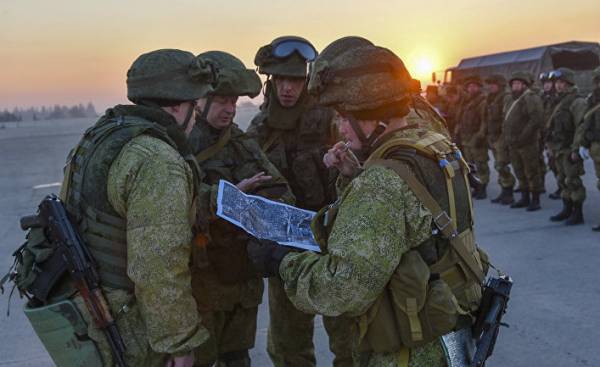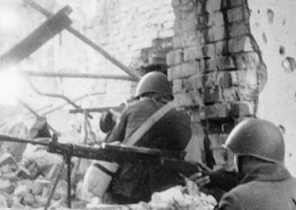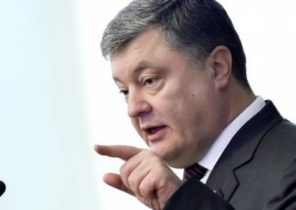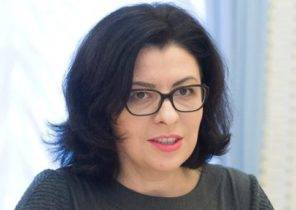
The armed aggression of Russia against Ukraine and an intense military operation in Syria has put Moscow before a very serious problem. She did not have enough trained soldiers for occupation forces.
The lack of soldiers caused by the constant heavy losses which are suffered by Russian troops, has radically changed the scale and nature of the military operations Moscow.
In the early stages of the conflict, this problem was solved by the involvement of staff of special forces of the Armed forces of the Federal security service (FSB), foreign intelligence Service, etc.
Now, however, to fill the gap, Russia has started to resort to private military companies (PMCs), to broaden recruiting base and to punish contractors for not wanting to participate in illegal operations.
At the moment, about Russian PMCs are still largely unknown. In Russia there are no less than ten. Some are even outside the Russian jurisdiction.
After the Kremlin in September 2015 made a decision about intervention in Syria, there were about 1,500 mercenaries from the Russian PMC “Wagner” related to operations in Ukraine. There she operates in the areas controlled by Russian and Pro-Russian forces and is known as “Cleaners”.
Soviet militants mostly Uzbek and North Caucasian roots created Malhama is a Tactical first jihadist PMC, which took, according to Foreign Policy, “specific niche between the world of private military companies and operating in Syria jihadist groups.”
To further expand its shrinking cadre base, the Kremlin simplifies the process of recruitment of Russian conscripts, reservists, persons without citizenship and foreign citizens.
The involvement of Russian citizens on contract service has been facilitated accepted 14 October 2016, the draft Federal law “On amendments to the Federal law “On military duty and military service””. This bill allowed the Russian authorities to enter into short term contracts with conscripts and reservists.
Previously first contract at the rank of soldier, sailor, Sergeant or Sergeant has signed up for two or three years, and in the rank of warrant officer, warrant officer or officer for five years.
Now these categories of military personnel can sign a contract for a period of six months to a year in case of “elimination of consequences of natural disasters, the implementation of a state of emergency, restore constitutional order and other emergencies” and “to participate in activities to maintain or restore international peace and security.”
It is also important that the necessity of amendments was justified by “changing military-political situation and the intensification of the activities of international terrorist and extremist organizations” which results in “the necessity of enhancing the mobility of troops (forces), summarization and non-standard units and staffing them in a short time, military personnel undergoing military service under the contract, to promptly solve short-term, but important problems associated with their participation in peacekeeping operations and the fight against terrorist and extremist organizations.” President Vladimir Putin signed the law on 28 December 2016.
These amendments allow Russia to collect and use a large army of occupation or military invasion under the pretext of “the maintenance or restoration of international peace and security or to the suppression of international terrorist activities.” In fact, they legalized the illegal recruitment of conscripts for “short term mission” to Ukraine as contractors.
In the procedure to contract the service of persons without citizenship and foreign citizens were also made major changes.
2 January 2015 Russian President by his decree changed the regulations on the procedure of military service, to ease entry into the armed forces persons without citizenship and foreign citizens. They do not want to accept Russian citizenship — including for military service or operations abroad.
Low quality of life, high unemployment and the presence of Russian military bases in Central Asia and Caucasus region make CIS a convenient area for recruitment. It is important that in the territories of the separatist regions arising out of the participation of the Russian Federation (i.e., the Crimea, South Ossetia, Abkhazia and Transnistria), there are also military bases and are Russian troops and equipment. These areas can also put the Russian fighters.
In addition, Russian forces can join and Russian-speaking volunteers from Western Europe, the Middle East or from North America. However, as the payment and social guarantees that they can provide, markedly inferior to international standards, it is likely to attract only an element of different radical groups. According to Russian experts, Russia can attract from abroad 25 million Russian-speaking fighters.
These foreign personnel Russia will be able to use to maintain the neo-imperialist policies and the civil war by the hands of illegal armed groups. Such a war at any moment can be turned into open armed aggression of the Russian army.
The real and serious threat is also associated with the recruitment and training of foreigners to Russian intelligence agencies for use in extremist and terrorist groups and actions. About increase this risk reflected in the growing number of militants from Russia and CIS, actively involved in extremist and terrorist activities of ISIS (organization banned in Russia — approx. transl.) in Syria and in Iraq and the Taliban (organization banned in Russia — approx. transl.) in Afghanistan.
High losses among the Russian military also encouraging them to avoid trips to the Ukrainian border. In the period from 2014 to mid-2015, the most unwelcome place of service in Russia was the 12th command of the reserve of the Armed forces of the Russian Federation in Novocherkassk, created to “officially” (but secretly) to send Russian troops to Ukraine.
Soldiers trying to avoid such a fate, suffering with the Russian repressive machine. Russian courts can easily impose the convictions against them, which leads to dismissal from the army, and sometimes even threatens a penal colony.
The use of PMCs, the involvement of foreigners and forcing soldiers to fight in illegal wars and unlawful orders can be qualified as war crimes. The Russian government’s attempts to achieve military advantage and to reduce costs may one day bring them to criminal liability for their decision to start an armed aggression in Syria and Ukraine with the use of illegal forces.
The best example of such developments can be found in the leaders of the former Yugoslavia, which an aggressive war in the Balkans and ultra-nationalist politics brought to the dock of an International Tribunal in the Hague.
Valentin Badrak, Director of the Centre for army, conversion and disarmament (ciakr); Lada Roslycky — security expert and “soft power”, consultant of public and private organizations, including CEACR, strategic communications; Mikhail Samus, Deputy Director of the research Center for army, conversion and disarmament on international issues (ciacr); Vladimir kopchak, Deputy Director of the research Center for army, conversion and disarmament on international issues (CEACR).







